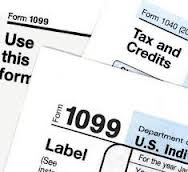It is believed that fraud and embezzlement continues for more than 12 months and often times over 18 months before it is detected. This can have dramatic financial consequences on any business. Unfortunately, internal crimes of this nature are on the rise. These crimes happen in large corporations, small businesses and family partnerships. Partners and trusted employees alike can be responsible. Forensic accounting check-ups can help before it is too late. Here are the top signs you need a check-up by an accountant and simple steps you can take to protect your business.
Signs of Fraud or Embezzlement
Not all signs of embezzlement or fraud are overt. There are small, subtle warning signs you need to look out for as well. This includes a partner or trusted employee with access to equipment, inventory, cash and financial assets that acts sneaky or protective of their job. Perhaps a certain individual keeps documents password protected and only gives you printed copies of documents. Maybe a trusted individual never goes on vacation. These are just some of the subtle signs your business is being defrauded.
Overt signs can be fairly obvious. Inventory missing, petty cash or bank accounts with less money than originally believed and deposits that seem lighter than usual. Retail stores, restaurants, bars and other physical locations are prone to theft by employees. This can range from the stealing of inventory or equipment but also discounts or house “comp’ed” items for friends or family. This can be more difficult in tightly held partnerships including those with family. Partners often feel they have a right to certain benefits and this can lead to abuse.
Safeguarding Your Business
The first step in safeguarding your business from internal theft or fraud is to create safeguards to ensure that one single person does not have the only authority over financial accounts, accounting documentation or inventory. Partners should have access to all business documents and business accounts. This helps to keep everything on the up-and-up. Dual signatures on expenses over $500 or $5000 depending on the size of the business can help to keep fraud down. It also helps to curb some partners from taking what they believe they are entitled to.
Open and honest communication among partners is essential. Setting guidelines for what benefits including discounts, free items and cash advances is essential. Compensation plans, benefit plans and partner distributions must be agreed to in advance. They can and should be adjusted as the business expands or contracts. This is just an ethical way to do business.
Another way to curb internal fraud is to double and/or triple train partners and key employees in all tasks. If one partner is responsible for inventory and ordering, another partner and a key employee should be fully trained to step in. This training not only allows for continuity in the event of an emergency, it also keeps multiple eyes on the internal running of the business.
Lastly, and especially, if accounting and financial activities are conducted in-house it is imperative that quarterly or semi-annual internal audits are conducted. An outside, contracted accountant can audit and reconcile financial accounts and help to make sure that money is not being siphoned off by a partner, investor or key employee. It is important when the audit is complete that all partners get together and go over the report. This helps to keep everyone on an even playing field and understand the level of scrutiny the business’ financial accounts undergo routinely.





